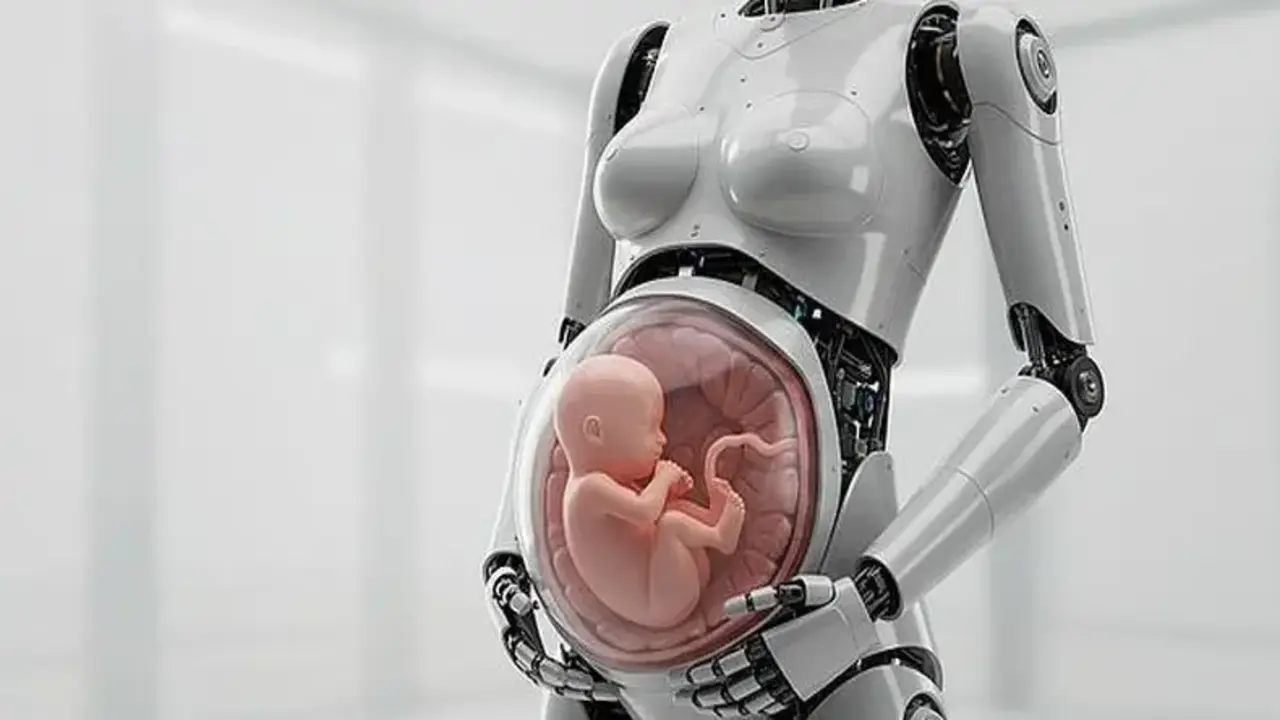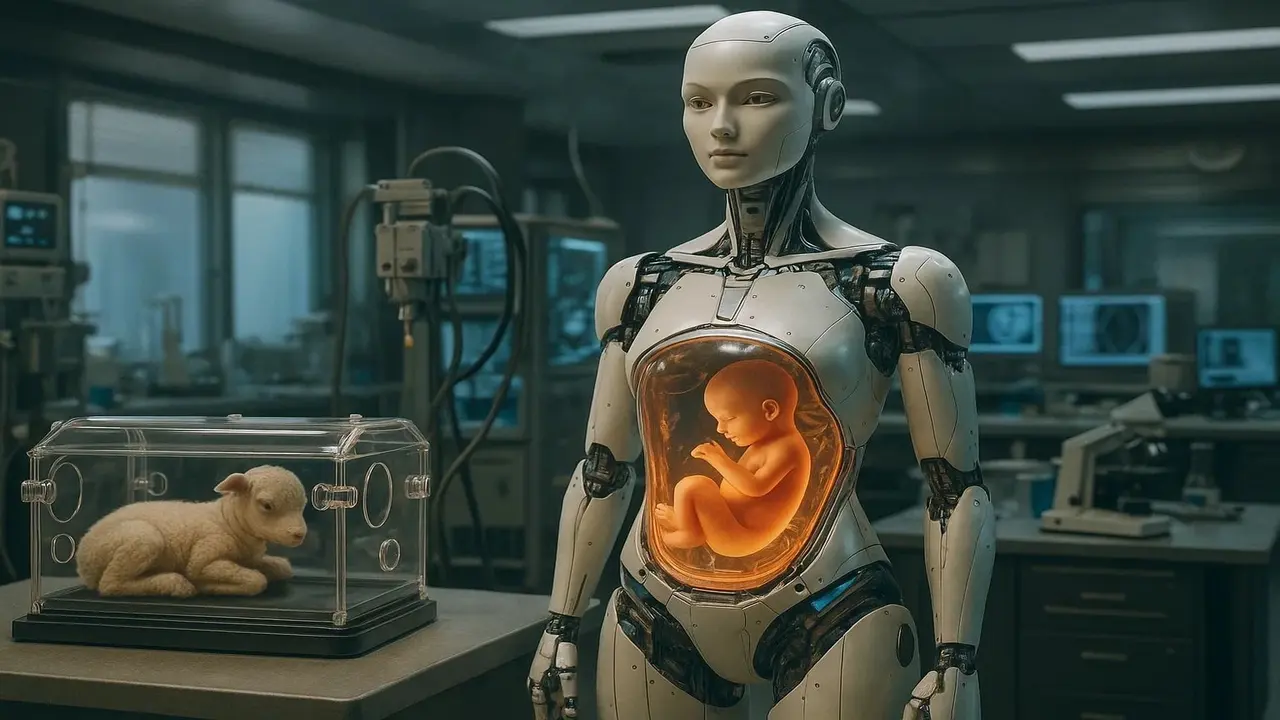Chinese scientists aim to integrate artificial womb technology into a humanoid robot, enabling the entire pregnancy process from fertilization to birth. The first prototype is expected to be officially unveiled in 2026.
The first pregnancy robot is about to be unveiled
Chinese scientists are developing a world-first “humanoid robot” capable of completing the entire pregnancy process. Equipped with an artificial womb, this robot aims to simulate every stage from fertilization to birth. The first prototype is scheduled to be unveiled next year.

According to Dr. Zhang Qifeng of Nanyang Technological University, this system is very different from traditional incubators. The robot’s abdominal cavity contains an artificial womb filled with amniotic fluid and other artificial organs.
This structure can fully simulate the entire pregnancy process, from fertilization to birth. While the embryo develops in this specialized environment, it also receives the nutrients it needs through a special tube. Dr. Zhang states that the technology is in its nascent stage, and that their primary goal is to enable human-robot interaction and perform the entire process within the robot.
A similar method was tested on animals in 2017. In a study published in the journal Nature Communications, a premature lamb embryo developed for four weeks in a system filled with artificial amniotic fluid called a “biobag,” and its feathers had begun to grow.
However, this system only functioned to grow an existing embryo. The new project in China is different because it aims to enable the entire pregnancy cycle, from fertilization to birth, within a humanoid robot.
The rising infertility rate in China is one of the main reasons for such projects. According to a report published in the journal Lancet, the infertility rate in the country rose from 11.9 percent in 2007 to 18 percent in 2020. As a result, artificial insemination services were included in public health insurance in major cities like Beijing and Shanghai.
While the first prototype is expected to be unveiled within a year, Chinese officials have already opened discussions on the ethical and legal aspects of the project. The future of the pregnancy robot is likely to spark intense debate not only from scientific perspectives but also from societal and legal perspectives. The commercial version of the pregnancy robot is expected to be sold for approximately $14,000.













